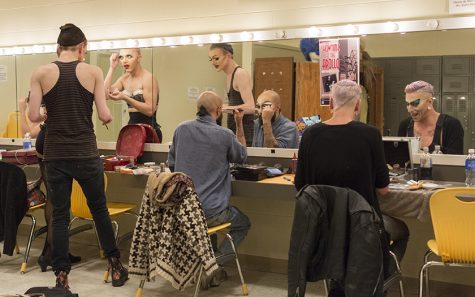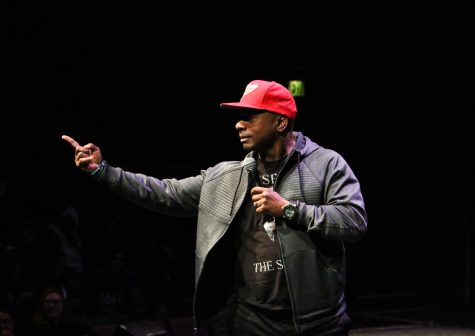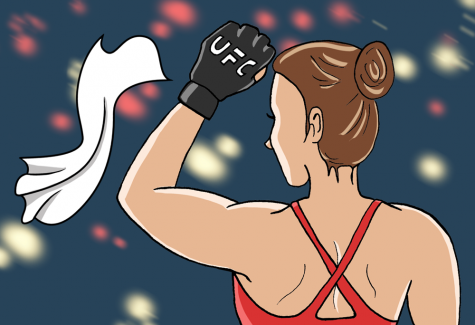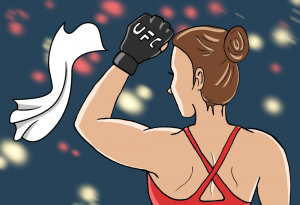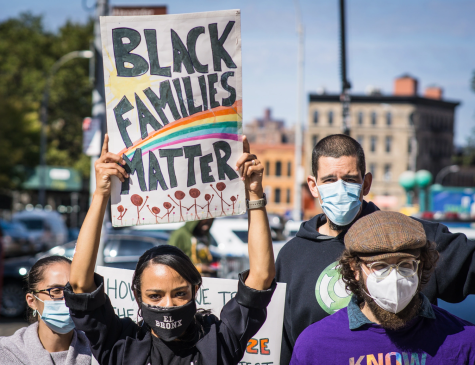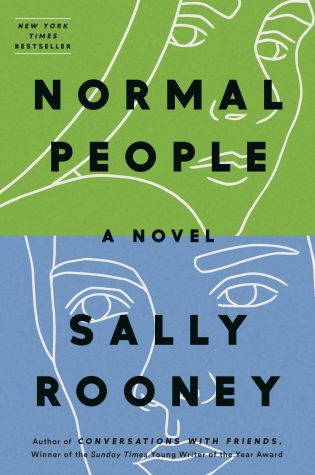Transgender, transracial?

2015 redesigned Pioneer logo.
January 3, 2018
Transgender and transracial. What is different about someone claiming to be an alternative gender and someone claiming an alternative race? Why do we accept one, but not the other?
Many people argue that gender is not a biological trait that is passed down from your parents. It is basically a random assignment when women become pregnant. However, race is passed down from your parents and is biologically set into your genetic code. Skin color, eye color, hair, etc. are predetermined by your parents. On top of that, as you grow up, your race and culture are solidified by your parents and other family members.
So why is being transgender widely accepted by the majority of people? I believe it is because the only thing that makes us male or female is our sex organs, and whether we have estrogen or testosterone running through our bodies. Each of which can be changed with extensive surgery or pills. In addition, people usually change genders because they believe they do not classify as the gender that is on their birth certificate.
For example, hermaphrodites are born with both male and female sex organs and have both male and female chromosomes. Mothers have the choice of “fixing” their newborn child and having a specific gender placed on the birth certificate, or leaving it and letting the child decide once they get older.
The controversy with “fixing” a child is that they may grow up feeling like a female when the doctor or mother chose male and vice-a-versa. Thus, leading the now older child to have a sex change to feel truly happy. So, being transgender is accepted by people because there are people out there who truly feel they do not relate with the gender that is on a piece of paper.
Changing your race is very different than changing your gender because it cannot be done. As stated earlier, race is biologically passed down from your parents. Not even your parents have control over your skin color, hair, and whether you are African American, white, Asian, etc.
To try and impersonate another race by changing your skin color, hair and claiming the culture and the stereotypes that come with it is degrading and disrespectful to that race. Martina Big is a European model who first became well known when she had a breast surgery that gave her 32S size breasts. And was crowned having the biggest breasts in Europe.
After all this in 2017, Big caused a huge uproar within the black community because she is a white woman who is now claiming to be black. She even went as far as to going to her European government to change her ethnicity to “Black.” Big uses tanning injection in order to darken her skin color. She has also made her lips bigger, had curly hair extensions attached and is planning on getting surgery for butt implants and African facial features.
It is clear to me that Big is only worried about the stereotypical physical features of being a black woman than the culture itself. She has neither knowledge nor understanding of the challenges that the black community used to and still go through today.
I decided to ask Nicholas Baham, an ethnic studies professor here at Cal State East Bay, why it is okay to change your gender, but not your race? He responded, “…it looks like blackface”, and was curious “…if [changing your skin color and hair texture] goes badly, can you revert back? I can’t revert back.” Professor Baham’s answer brought up a good point that if Martina Big, or any other person that claims a race that is not their own, does not like how she is being treated as a “black woman” then she can go back to being white.
However, I cannot and I have to deal with the intersectionality of being not only black, but a black woman in America today.
Race is deeper than physical features. It includes history, culture, the trials, tribulations and also successes. When you are born into a race you take on the history and its culture. Therefore, to say you are black when you are not is saying that your ancestors were dragged here, beaten, and fought for basic human rights while also fighting for their lives.
I am not against people who immerse themselves into another race’s culture and learn about it. I am against those people who change their entire lifestyle in order to be like that race, and do not have the slightest knowledge of the race and culture itself. Do not take something that is not yours!
So, what makes someone truly black? To put it simply, I believe someone is black if they have one or two black parents, have a black grandmother, a mixed parent, and a black or white parent, or many other variations of black and white. I would go into ancestry and the “one-drop rule,” however it is hard to figure family backgrounds. Websites like Ancestry.com are not accurate. I also believe at some point that maybe whiteness or blackness can take over the family tree.
For example, let’s say a white person and a black person procreate a mixed baby, then that baby goes on to procreate with a white person, and so on. If this pattern continues, eventually most of the family line will be white, and will overshadow the one black person in the family history.
I believe this is what happens. However, others may believe if you have one black or white ancestor then one percent of black or white will stay within the family’s history forever. Hence the “one-drop rule.”




